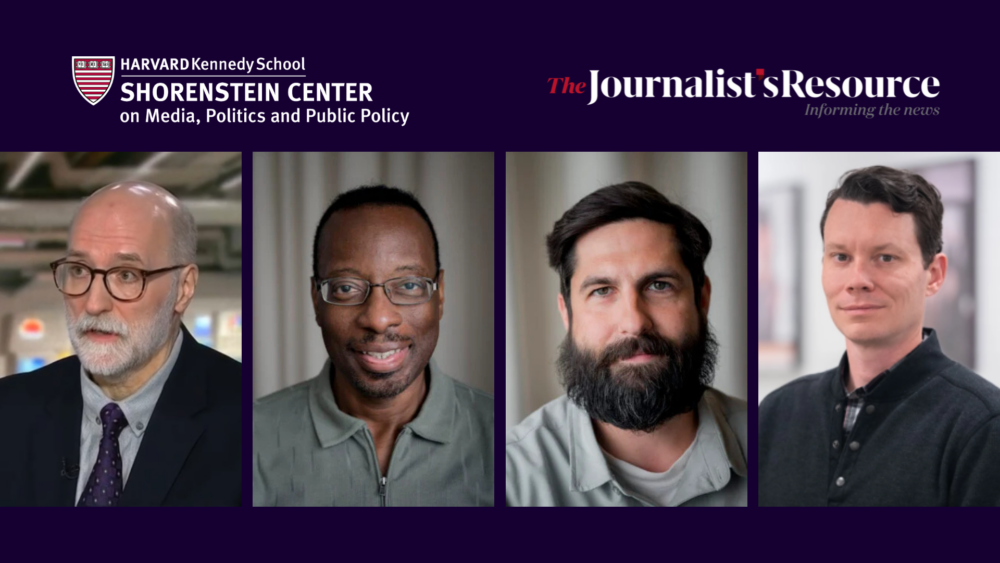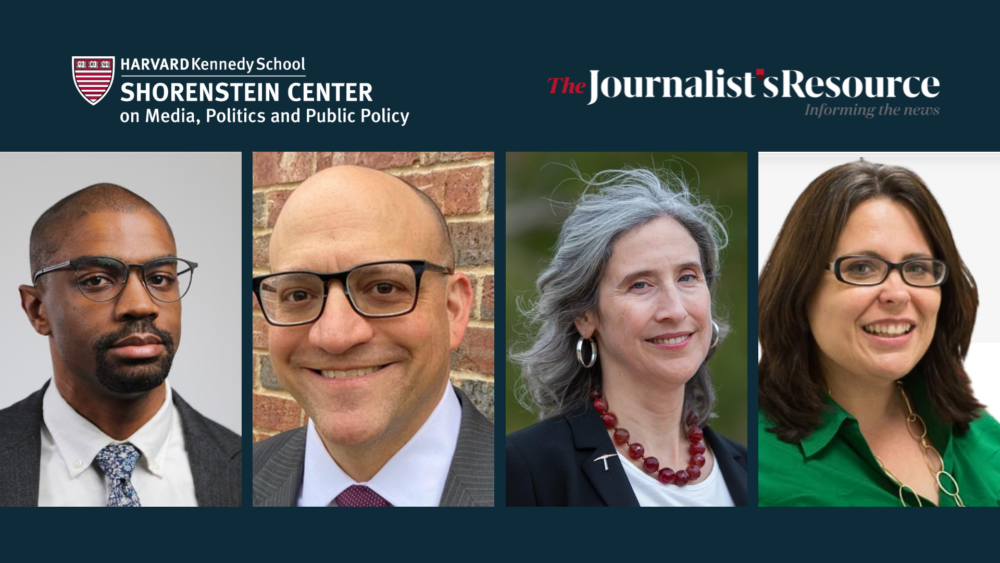
Videos
Digging into crime data to inform news coverage across beats
The video version of these remarks can be found by clicking here.
I’m Nancy Gibbs, the director of the Shorenstein Center on Media, Politics and Public Policy at Harvard’s Kennedy School of Government. I had so hoped that we would be gathered together to celebrate the extraordinary career of Kathleen Carroll. The fact that this is a virtual celebration makes it no less heartfelt.
I have admired her as a journalist and a public leader over her long and extraordinary career and seen her as a role model for the very best that journalism can offer. She carries herself so modestly that it would be easy to underestimate what was involved in leading the world’s largest independent news agency – thousands of reporters across hundreds of locales in more than a hundred countries including, thanks to her, Myanmar, North Korea, Saudi Arabia. Under her leadership, during years
of war and financial collapse and all kinds of disruption and division, she
elevated the AP as a fierce model of commitment to fairness and facts at a time when information is too often devalued.
The AP under her leadership won every major journalism prize, including both the Pulitzer and our own Goldsmith Prize for their exhaustive 18-month investigation into slavery in the Asian fishing industry.
She has been an outspoken champion for the safety and security of reporters, most recently as the board chair of the Committee to Protect Journalists. She is the first journalist to address the United Nations Security Council about the importance of journalists’ security.
This is from Senior Correspondent Kathy Gannon, who was wounded in an attack when she was reporting from Afghanistan – an attack that killed her photographer:
Kathleen’s leadership style is an equal measure of strength and compassion. She also has an insight into people. She can see their strengths, but also their worries, and maybe even their fears. She felt the responsibility of sending people into war zones and dangerous situations so deeply. Her compassion and protectiveness toward me as I recovered over months and into years was nothing short of remarkable.
She also turned out to be very good at dealing with dictators especially many who had very little experience dealing with top female media executives. This is from her colleague, AP Vice President John Daniszewski.
When the Egyptian Military deposed the elected Muslim Brotherhood government, it blamed AP for providing live video feeds to a local Arab broadcaster, and wanted to throw the AP out of the country. But Kathleen flew to Cairo, sat down with the generals, and soon had them eating out of her hands. She was similarly adroit with Iranian mullahs, Saudi bureaucrats, and even the North Koreans.
The success of the AP and its evolution into a more multimedia powerhouse also reflects Kathleen’s particular gifts for breaking down the silos within the organization.
Kathleen also raised the stature of local employees working alongside U.S. correspondents in dangerous locations all around the world, making sure that their pay and protections were equal to their American counterparts. This was a matter of equity as well as excellence as she built the AP into the extraordinary global news organization that it is.
We all have reason to be grateful for Kathleen’s extraordinary leadership, and for those of us who are journalists we hold her in special reverence because we know how hard these jobs can be and how hard it is to make it look easy.
Her candor, her stubbornness, her persistence, and her courage defined journalism for a generation of young reporters, and gave us all a model to look up to. It is an honor to honor her and to celebrate such an extraordinary career
– Nancy Gibbs, Shorenstein Center Director and former Editor in Chief of TIME Magazine

Videos

Commentary

Videos